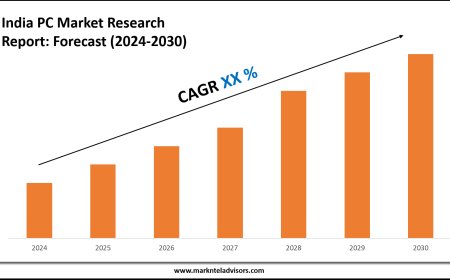Business Valuation in 2025: Everything Entrepreneurs Must Know
Explore the importance of business valuation in 2025. Learn how it impacts funding, M&A, succession planning, and strategic growth decisions.

In todays fast-changing economic climate, understanding the value of your business is not a luxuryits a necessity. Whether you're an entrepreneur, investor, or corporate decision-maker, business valuation plays a crucial role in strategic planning, fundraising, mergers and acquisitions, and even during crisis management.
In this guide, well explore why business valuation is more relevant than ever in 2025 and how it can unlock smarter decisions for businesses of all sizes.
What Is Business Valuation?
Business valuation is the process of determining the economic value of a business or company. It considers several financial indicators such as revenue, profit margins, assets, market position, intellectual property, and future growth potential.
Its used for various purposes like investment analysis, capital funding, taxation, divorce proceedings, and sale value estimation.
Why Business Valuation Is Essential in 2025
Several macroeconomic and technological factors make business valuation more important than ever this year:
1. Post-Pandemic Adjustments
Many businesses experienced major fluctuations during COVID-19. Some sectors boomed (like tech and health), while others struggled. A valuation helps normalize and contextualize your business's current worth in a changed landscape.
2. Global Investment Activity
Private equity, venture capital, and angel investors continue to look for scalable ventures. A professionally done business valuation builds trust and accelerates funding rounds.
3. Rise in M&A Activity
Increased consolidation across industries means that small and medium businesses are frequently approached for acquisitions. Knowing your worth helps you negotiate from a position of strength.
4. Succession and Exit Planning
As baby boomers retire, thousands of businesses will change hands. Business valuation is vital to ensure a fair exit and smooth transition.
5. ESG and Intangible Asset Impact
In 2025, environmental, social, and governance (ESG) factors, brand equity, and IP are major contributors to business valuemaking valuation a complex yet essential process.
Common Methods of Business Valuation
Several approaches are used based on the type of business, its lifecycle stage, and market dynamics:
Asset-Based Valuation
Focuses on the total value of tangible and intangible assets minus liabilities.
Income-Based Valuation
Estimates value based on future income potential, often using Discounted Cash Flow (DCF) methods.
Market-Based Valuation
Compares the business with similar companies that have been sold or are publicly traded.
Earnings Multiples
A popular approach for startups and SMEs. This multiplies EBITDA or net profit by a relevant industry multiple.
Each method has pros and cons and is chosen based on context and industry standards.
When Should You Get a Business Valuation?
-
Before raising capital
-
During partnership or shareholder disputes
-
Before M&A deals
-
For financial reporting or audits
-
While applying for loans
-
As part of exit or succession planning
Even if youre not actively planning a big move, a periodic valuation gives you insight into how your business is performing and what levers impact its value.
Benefits of a Professional Valuation
Getting your business valued by professionals (rather than DIY spreadsheets) offers several benefits:
-
Accuracy & Compliance: Aligns with accounting, legal, and tax regulations.
-
Strategic Insights: Identifies value drivers and operational gaps.
-
Investor Confidence: Builds trust during funding negotiations.
-
Risk Mitigation: Helps assess downside scenarios realistically.
For example, valuation experts at RNC offer in-depth, customized valuation reports that cater to businesses across sectors helping them navigate decisions with clarity and confidence.
Mistakes to Avoid
-
Using outdated financial data
-
Ignoring market conditions
-
Relying solely on one method
-
Skipping professional assistance
Valuation is both an art and sciencerequiring financial analysis, market benchmarking, and sometimes legal insights. Avoid shortcuts.
Final Thoughts
In a competitive and data-driven market, business valuation is more than a numberits a strategic asset. Whether youre planning a fundraise, preparing to exit, or simply tracking your growth, getting your business valued in 2025 ensures that you make decisions based on facts, not guesswork.
A reliable valuation can be the key difference between undervaluing your life's work and unlocking its full potential.
If you're looking to start with a credible, experienced team, check out RNC., a trusted valuation partner with decades of industry expertise.






































